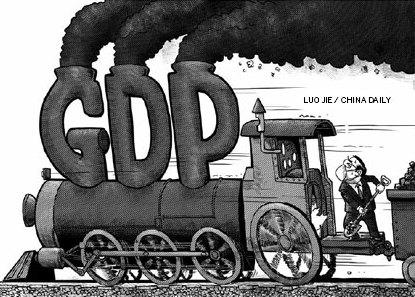People from all walks of life are hoping the upcoming Third Plenary Session of 18th Communist Party of China Central Committee will signal that the government and the Party are attaching greater importance to environmental protection.
Thanks to reform, demographic, and environmental dividends, China's economy has developed rapidly over the past two decades, and the country's GDP reached 51.9 trillion yuan ($8.3 trillion) in 2012, 6.87 times that of 2000. However, this has been accompanied by growing threats to the environment. Industrial emissions in 2011 were 4.88 times more than the emissions in 2000. Hazardous air pollution has plagued many Chinese cities in the recent years, and in some areas industrial discharges have polluted the environment to a dangerous extent.

The smog and haze that blanketed a large swathe of the country at the beginning of 2013 and the contaminated rivers and rice scandals that followed increased people's awareness of the poisoning of the land and air and fueled public anger. As a result, tackling environmental degradation has become a priority problem for China's new leadership.
The government released China's Action Plan for Prevention and Control of Air Pollution in September, which admitted the country's air pollution is "severe" and harming people's health and is now a threat to social stability. It provides a road map for air pollution control over the next five years, focusing on three key regions, the Beijing-Tianjin-Hebei area, the Yangtze River Delta and the Pearl River Delta.
It set the goals of reducing the concentration of PM 2.5 - those particles smaller than 2.5 microns in diameter, which can penetrate deep into the lungs - by 25 percent by 2017 in the Beijing-Tianjin-Hebei area, 20 percent in the Yangtze Delta, and 15 percent in the Pearl River Delta, and put forward 10 measures to achieve these targets, including strengthening treatment efforts to reduce multi-pollutant emissions; accelerating the adjustment of energy structures to increase clean energy supply; and improving the legal system to conduct stricter supervision and management.